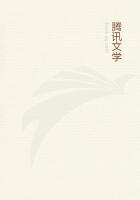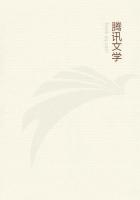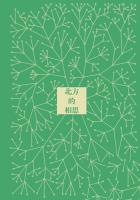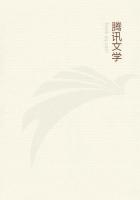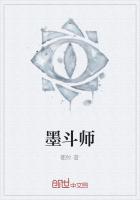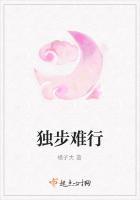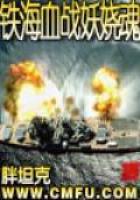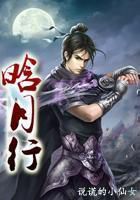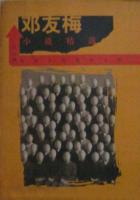He had said all this in a subdued and rapid voice, apparently only talking to himself--the only man worthy of learning the most secret thoughts of his soul--and still with proud disdain toward him who could overhear every word he said. He felt as though he were alone, and he only spoke and consulted with himself, notwithstanding the secretary's presence.
Another long pause ensued. Bonaparte pacing the room once more with rapid steps. Violent and impassioned feelings seemed to agitate his breast; for his eyes became more lustrous, his cheeks were suffused with an almost imperceptible blush, and he breathed heavily; as if oppressed by the closeness of the room, and in want of fresh air, for he stepped up to the window and opened it violently.
An expression of amazement escaped from his lips, for the landscape, which yesterday was clad in the gorgeous hues of autumn, now offered an entirely different aspect. Hoar-frost, dense and glittering, covered the trees and the verdure of the meadows; and the Noric Alps, which crowned the horizon with a majestic wreath, had adorned themselves during the night with sparkling robes of snow and brilliant diadems of ice.
Bonaparte looked at the unexpected spectacle long and thoughtfully.
"What a country!" He then whispered, "Snow and ice in the first part of October! Very well! we must make peace!" [Footnote: Bonaparte's own words. Bourrienne, vol. 1., p. 313.]
He closed the window and returned to the desk.
"Give me the army register," he said to Bourrienne, and took a seat at his side.
Bourrienne laid the books and papers in succession before him, and Bonaparte read and examined them with close attention.
"Yes," he then said, after a long pause, "it is true, I have an army of nearly eighty thousand men; I have to feed and pay them, but, on the battle-field, I could not count on more than sixty thousand men.
I should win the battle, but lose again twenty thousand men in killed, wounded, and prisoners. How, then, should I be able to resist the united Austrian forces, which would hasten to the assistance of Vienna? It would take the armies on the Rhine more than a month to come up in supporting distance, and in the course of two weeks the snow will have blocked up all roads and mountain- passes. I am determined, therefore, to make peace. Venice must pay for the war, and the frontier of the Rhine. The Directory and the learned lawyers may say what they please.[Footnote: Bonaparte's own words.--"Memoires d'un Homme d'Etat," vol. iv., p. 558.] Write, Bourrienne, I will now dictate my reply."
Bourrienne took his pen; Bonaparte arose from his seat, and folding his arms on his breast, he resumed his promenade across the room, dictating slowly and clearly, so that every word dropped from his lips like a pearl, until gradually the course of his speech grew more rapid and rolled along in an unbroken, fiery, and brilliant torrent.
"We shall sign the treaty of peace to-day," he dictated, in his imperious tone, "or break off the negotiations altogether. Peace will be advantageous to us--war with Austria will injure us; but war with England opens an extensive, highly important and brilliant field of action to our arms."
And now he explained to the Directory the advantages of a treaty of peace with Austria, and of a war with England, with logical acuteness and precision. His words were no less pointed and sharp than the edge of his sword, and as brief, stern, and cold as the utterances of a Cato.
He then paused for a moment, not in order to collect his thoughts, but only to give his secretary a few seconds' rest, and to get a breathing-spell for himself.
"Let us go on now," he said, after a short interval, and dictated in an enthusiastic voice, and with flaming eyes: "If I have been mistaken in my calculations, my heart is pure, and my intentions are well meaning. I have not listened to the promptings of glory, of vanity and ambition; I have only regarded the welfare of the country and government. If they should not approve of my actions and views, nothing is left to me but to step back into the crowd, put on the wooden shoes of Cincinnatus, and give an example of respect for the government, and of aversion to military rule, which has destroyed so many republics, and annihilated so many states." [Footnote:
Bonaparte's own words.--"Memoires d'un Homme d'Etat," vol. iv., p.
558.]
"Are you through?" asked Bonaparte, drawing a long breath.
"Yes, general, I am."
"Then take another sheet, my friend. We are going to write now to the sly fox who generally perceives every hole where he may slip in, and who has such an excellent nose that he scents every danger and every advantage from afar. But this time he has lost the trail and is entirely mistaken. I will, therefore, show him the way. 'To Citizen Talleyrand, Minister of Foreign Affairs.' Did you write the address?"
"Yes, general."
"Well, go on."
And without stopping a single time, and even without hesitating, Bonaparte dictated the following letter:
"In three or four hours, citizen minister, every thing will be decided--peace or war. I confess that I shall do every thing to make peace, in consequence of the advanced season and the slim prospect of achieving important successes."
"You know very little about the nations of the peninsula; they do not deserve that forty thousand French soldiers should be killed for their sake. I see from your letter that you always argue from unfounded premises. You fancy that liberty would make a great impression upon a lazy, superstitious, cowardly, and degraded people."
"You ask me to do miracles, and I cannot perform them. Ever since I came to Italy, the nation's desire for liberty and equality was not my ally, or at best it was but a very feeble one. Whatever is merely good to be mentioned in proclamations and printed speeches is worth no more than a novel."


